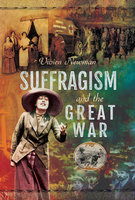New, Quality Gift Books - 50-90% off - over 2500 titles
Your basket is empty.
Categories History HISTORY OF BRITAIN BOOK III: The Tudors 1485-1603
HISTORY OF BRITAIN BOOK III: The Tudors 1485-1603
Book number: 95374
Product format: Paperback
In stock
Bibliophile price
£3.75
Published price
£10
Customers who bought this product also bought
|
PIONEERS OF SPACEFLIGHT: DVD and Magazine
Book number: 94393
Product format: Unknown
Bibliophile price
£2.75
Published price
£14.99
|
SUFFRAGISM AND THE GREAT WAR
Book number: 95132
Product format: Hardback
Bibliophile price
£5.00
Published price
£19.99
|
WOMEN IN THE GREAT WAR
Book number: 95144
Product format: Paperback
Bibliophile price
£6.50
Published price
£12.99
|
|
MYSTERY ON HIDDEN LANE: An Eve Mallow Mystery Book 1
Book number: 94567
Product format: Paperback
Bibliophile price
£5.00
Published price
£9.99
|
ABBEY ROAD
Book number: 95311
Product format: Hardback
Bibliophile price
£8.00
Published price
$29.95
|
BRIEF HISTORY OF THE ENGLISH CIVIL WAR
Book number: 95357
Product format: Paperback
Bibliophile price
£6.00
Published price
£8.99
|
Browse these categories as well: History, TUDOR BOX







